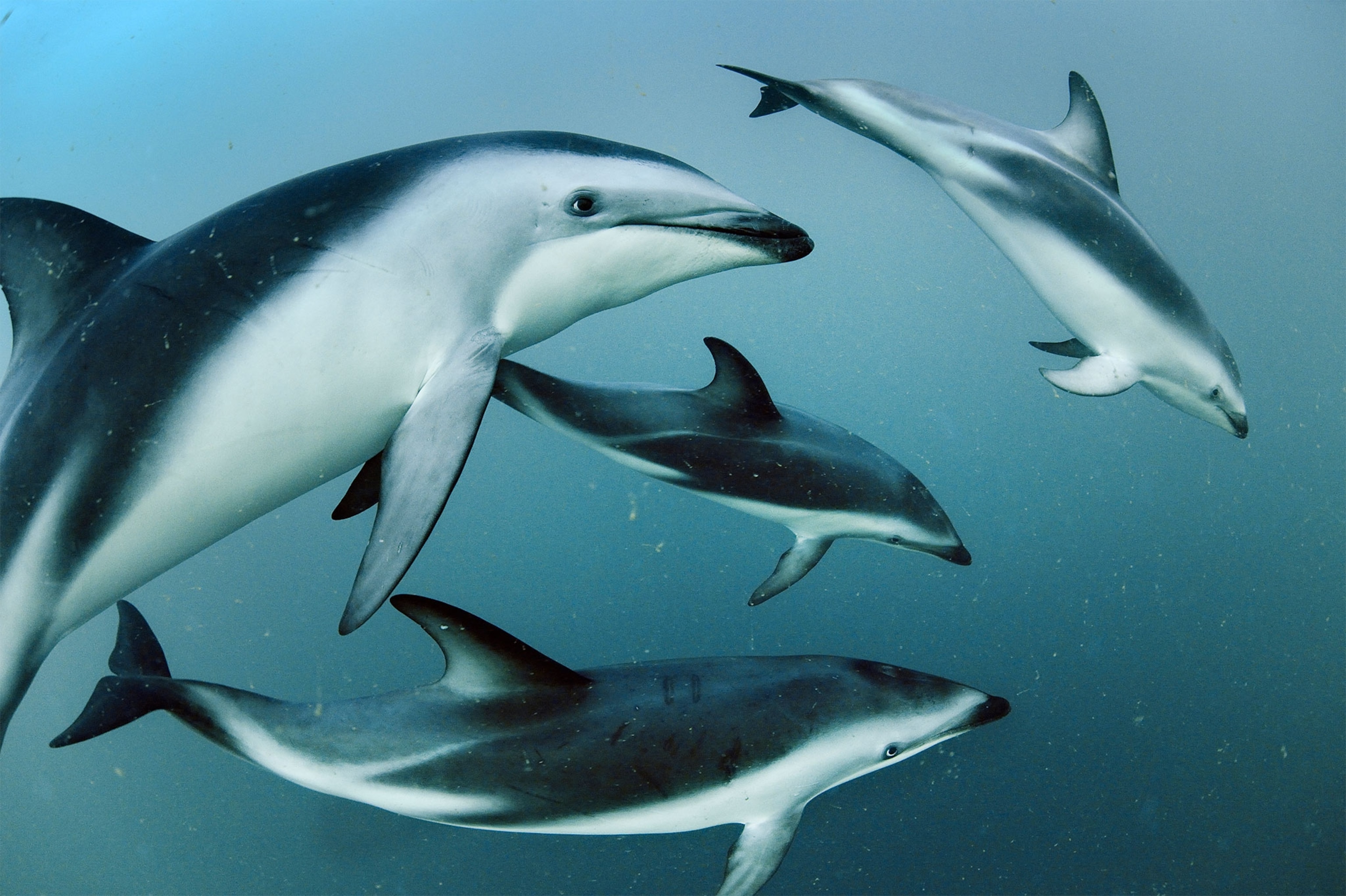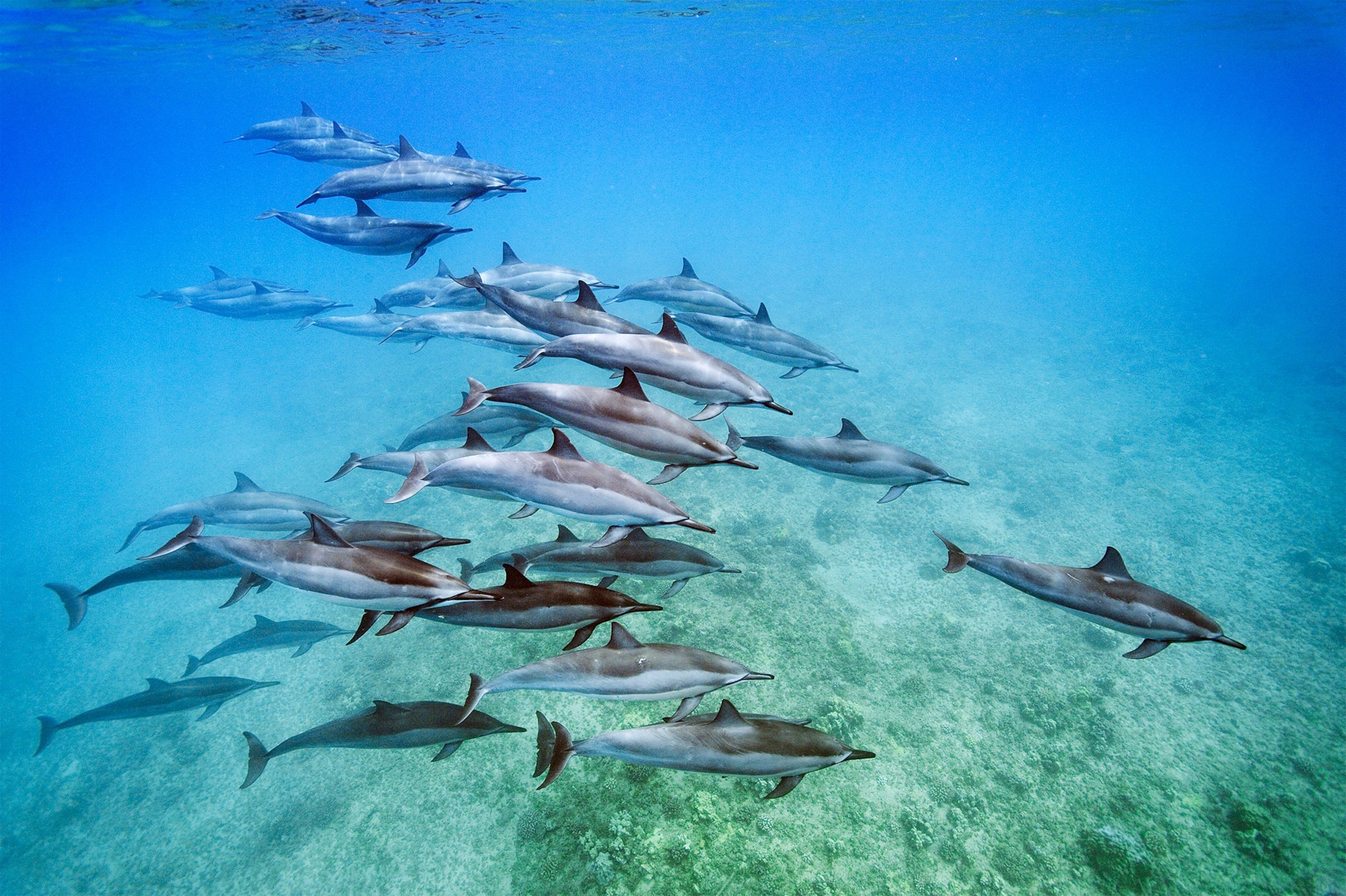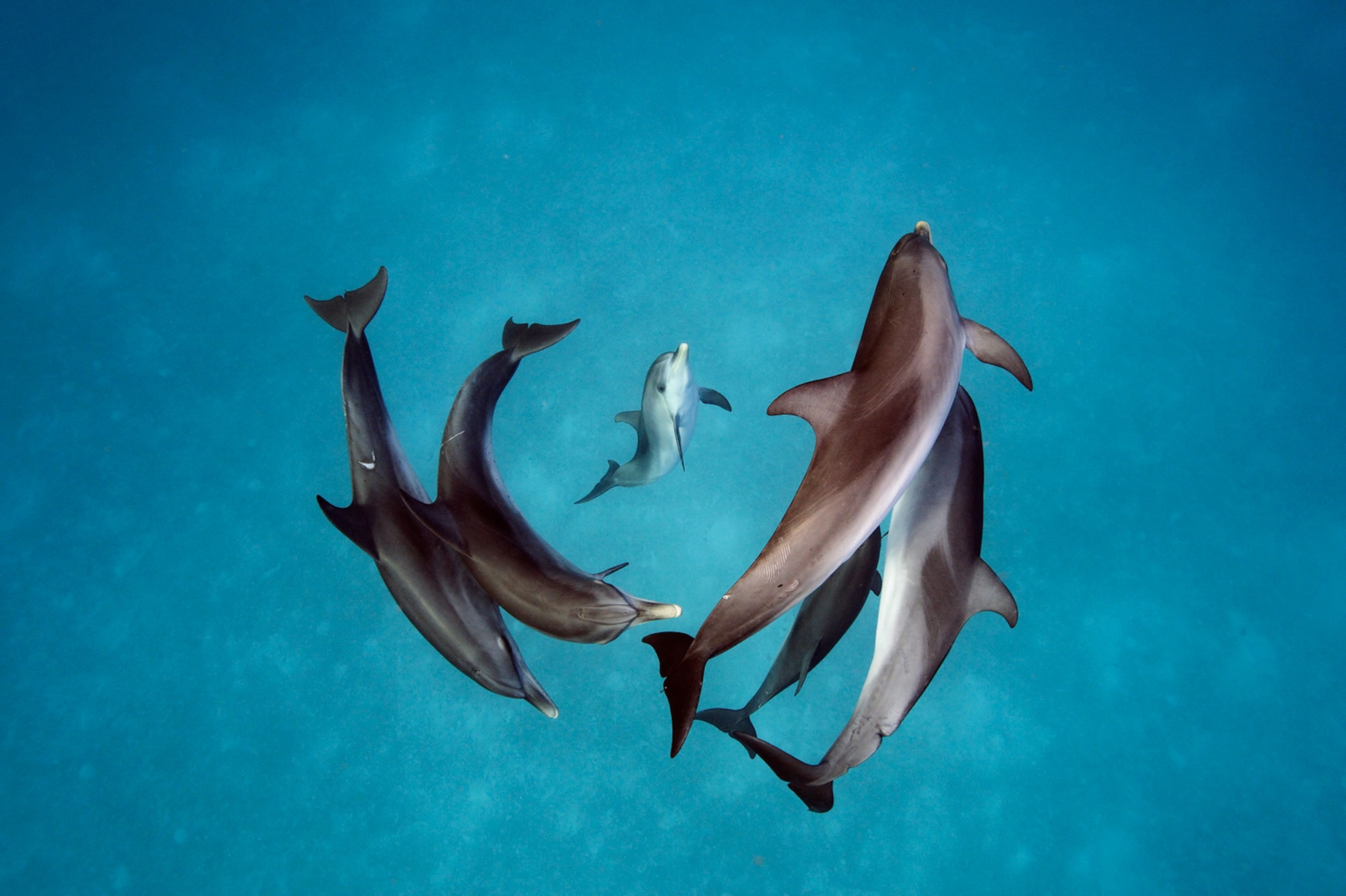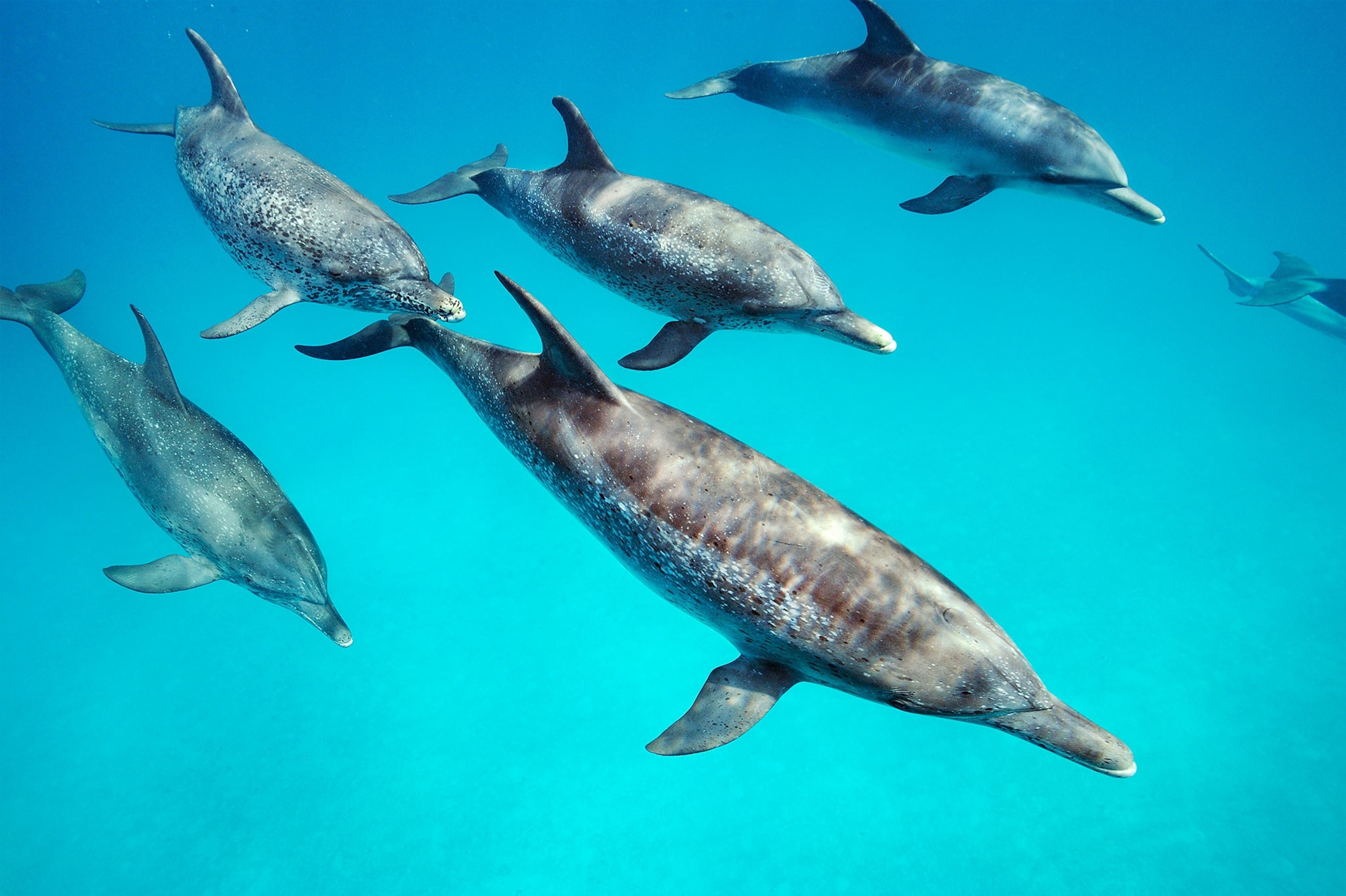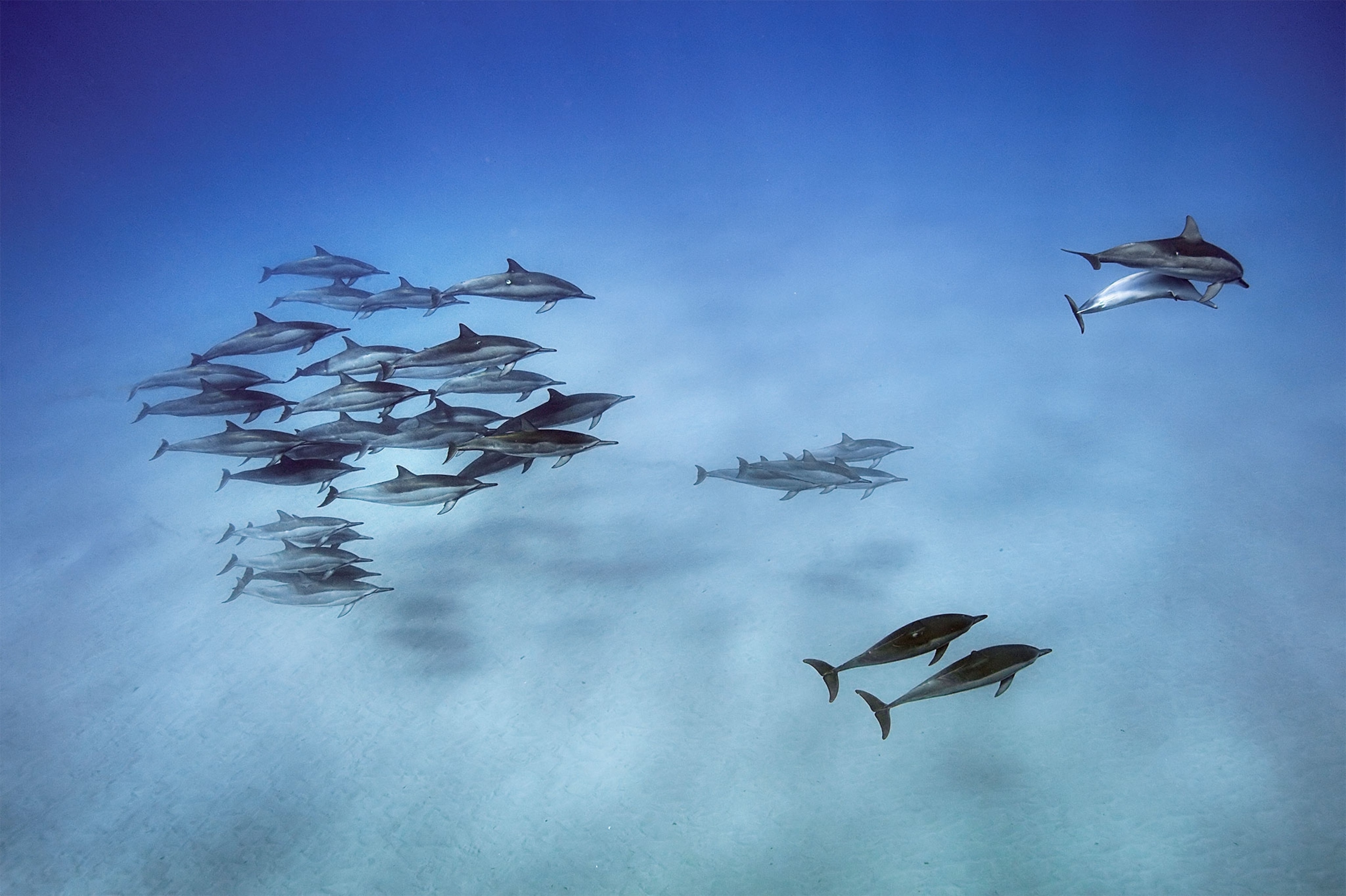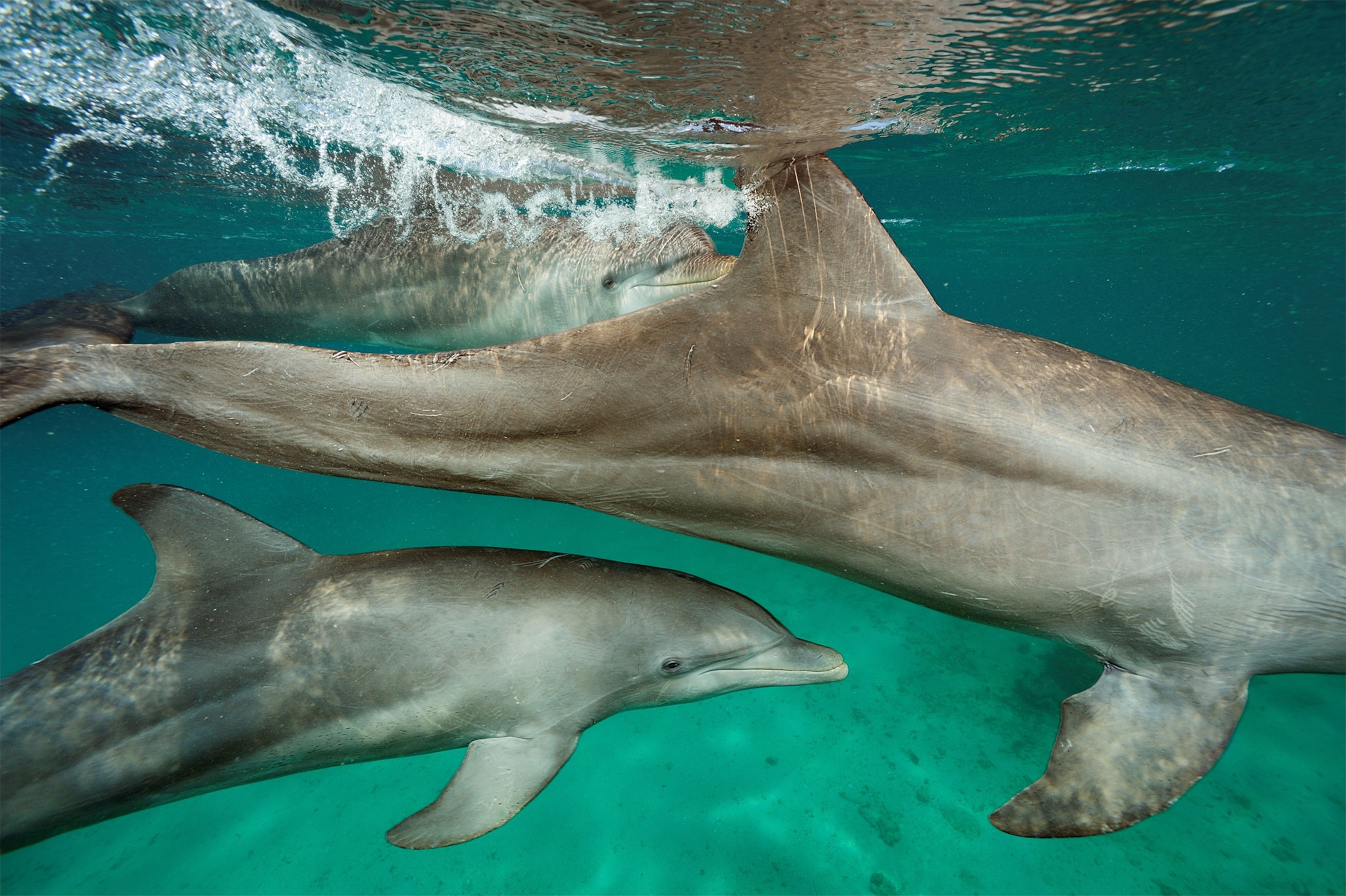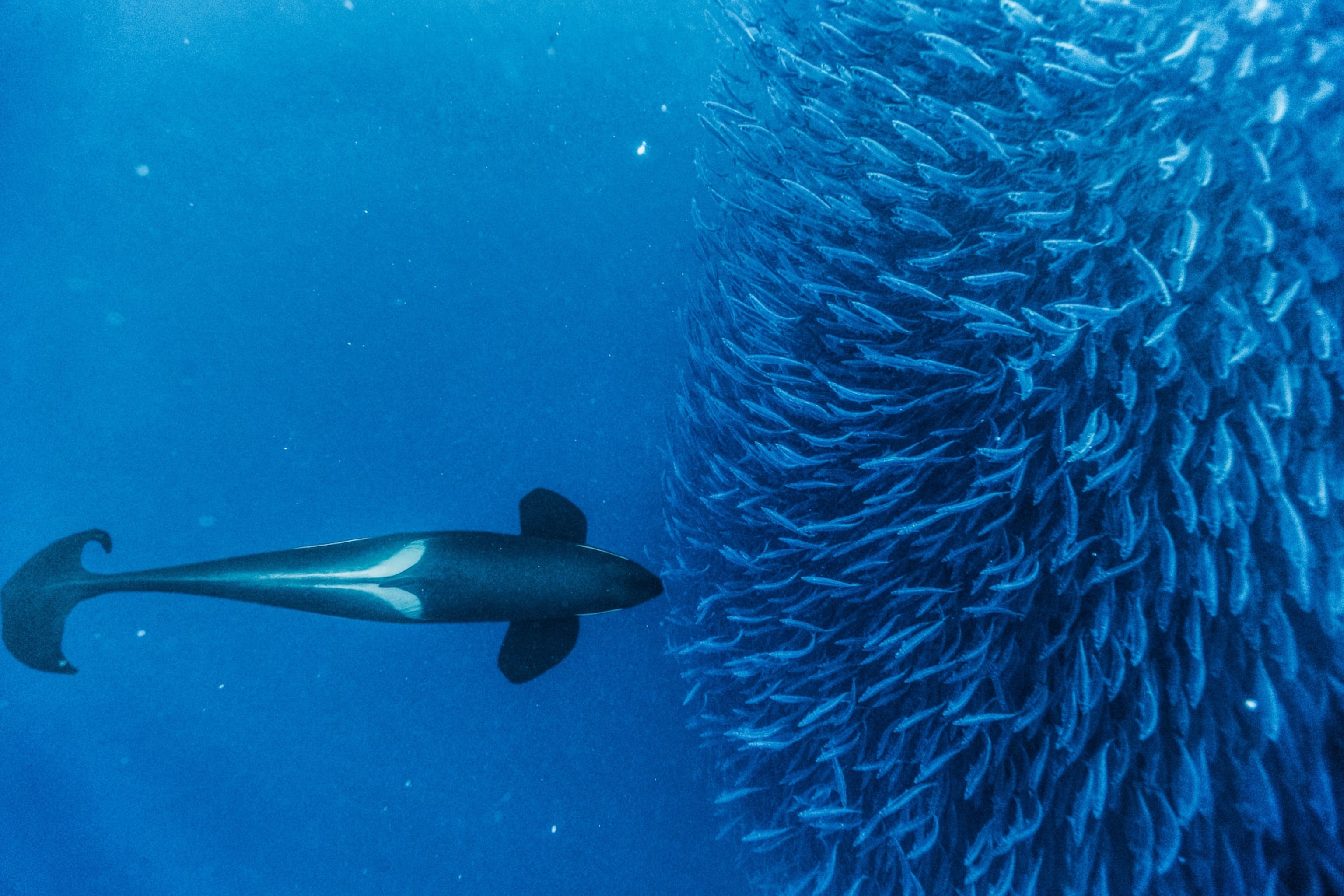Millions of years ago, ancient land-dwelling mammals returned to the sea. Their bodies became streamlined for swimming, articulated fingers turned into flippers and fins, hypnotic songs slowly filled the oceans—and, somewhere during the evolutionary process, the newly evolving marine mammals lost a particular gene called Paraoxonase 1, or PON1.
Perhaps that gene was no longer necessary for organisms adapted to life in the water; as evolution streamlined aquatic bodies, it may have similarly streamlined genomes. But whatever the reason, PON1 ceased to function in each of the three marine mammal lineages that are today’s whales and dolphins, manatees and dugongs, seals and sea lions.
“The fact that it’s so absolutely conserved in terrestrial species, and is completely lost from most, almost all marine lineages—it’s really striking isn’t it?” says the University of Pittsburgh’s Nathan Clark, senior author of a study reporting the results today in the journal Science. “It seems like this gene has a story to tell.”
Normally, that story would be intriguing enough on its own. But in a strange twist of fate, PON1 also provides a crucial defense against a particularly nasty class of pesticides called organophosphates. PON1 obliterates pesticide byproducts in blood plasma, so terrestrial mammals with normal PON1 levels—including humans—can effectively deal with exposure.
Still commonly used in agriculture and frequently washed into the sea, organophosphates inhibit the central nervous system, causing paralysis and permanent brain damage. And so far, there are no signs that our marine kin have evolved a mechanism to defend themselves against these toxins in place of PON1.
“I’m not surprised that function was lost because it may not have been useful initially in the marine environment,” says Gregory Bossart of the Georgia Aquarium, who studies toxin exposure in dolphins and other mammals.
“Now, it would be. But it may be too late.”
A Pattern of Loss
Bossart is right: That various genes changed as mammals moved into a watery environment is not surprising—that’s how evolution works.
But Clark and his colleagues wanted to identify patterns of activity that changed in tandem across multiple lineages as mammals moved into the sea, and that meant looking within the three major evolutionary branches of today’s marine mammals—cetaceans (whales and dolphins), who share a common ancestor with hippopotami, sirenians (manatees and dugongs), who share a common ancestor with elephants, and pinnipeds (seals and sea lions), who share an ancestor with bears and weasels.
“Marine mammal evolution is really amazing for this because usually, one of the problems with identifying things that are adaptive, or that are really important for organismal function, is that you don’t often have replicates,” says Wynn Meyer, lead author of the paper. “You see some kind of weird change in an organism that happens only once. But here, you can see it multiple times.”
Meyer lined up the genomes of a handful of marine mammals and looked for patterns that indicated a significant change in function relative to terrestrial mammals—in particular, genes that had been lost as evolution progressed, indicated by sequence variations that prematurely truncate a protein or destroy its ability to function. Across those marine mammal genomes, Meyer and her colleagues saw the signatures of dozens of disrupted genes, most of which produce taste or odor receptors.
That makes sense, given the substantial differences between marine and terrestrial diets and environments.
But PON1 jumped out from the rest. It wasn’t involved in sensory processes, but had accrued inactivating mutations, over and over again. As a result, it had been lost across all three marine lineages—yet was still completely preserved among terrestrial mammals. Of all the genes the team identified, only PON1 had that pattern. And not surprisingly, when scientists verified the gene’s loss of function by testing for PON1 enzyme activity in marine mammal blood, they found nothing in the species with mutated sequences.
“It is quite an interesting find,” says Margaret Hunter, a biologist with the U.S. Geological Survey. “These marine mammals appear to be the only class of mammals lacking this gene, and it appears to be a broadly diverse group of marine mammals.”
Unclear Advantage
It’s not yet clear why our marine cousins ended up PON1-less, and whether that loss of function confers some kind of physiological advantage or is a simple consequence of no longer being necessary.
“It’s difficult to tell the difference between something that was lost because losing it was beneficial, or something that was lost because having it around was no longer necessary,” Meyer says. “Those are subtle differences, and especially when a gene has lost its function, it’s really hard to tell those two things apart.”
Meyer first guessed that because PON1 normally plays a role in metabolizing fats, its shifting expression pattern might be a consequence of diets shifting from terrestrial to marine. But, she notes, some aquatic species with more terrestrial diets still show signs of loss, while others with more marine diets, such as polar bears, do not.
Now, she and Clark are mulling over a different scenario, derived from a clue that comes from expression patterns within pinnipeds. Unlike sirenians and cetaceans, not all pinniped species studied have lost PON1 function. Instead, only the deepest diving—such as the Weddell seal—no longer have functioning PON1. The walrus and others that aren’t so inclined to visit the abyss still retain PON1. So, it could be that the gene’s deleted activity has something to do with the oxidative stress involved in diving, although that idea will need further testing. (Meet the people who are genetically adpated to diving.)
And, Clark says, it’s possible we’re witnessing the loss of PON1 function even now, in seals.
“Cetaceans have been aquatic for a very long time, whereas pinnipeds haven’t been aquatic as long,” Clark says. “So it might be that as pinnipeds as a group move forward, some of these pinniped lineages will go extinct and others will proliferate, and they might look the same as cetaceans in another 10 to 20 million years. But I won’t be around to test that.”
In the shorter term, Clark and his colleagues are planning on sequencing beavers, muskrats, capybaras, and other aquatic and semi-aquatic critters.
“We need some species or populations that have lost PON1, and some that haven’t, so we can see what environmental factors differ between these species,” Meyer says.
The Danger of Exposure
For now, it’s not yet clear whether marine mammals are suffering from the effects of organophosphate exposure, although it is clear that such pesticides are toxic and are being dumped into aquatic habitats. Of the organophosphates, among the most notorious in the public sphere is chlorpyrifos, which blocks an enzyme called cholinesterase and can lead to a toxic buildup of the neurotransmitter acetylcholine.
In 2000, the Environmental Protection Agency banned chlorpyrifos from residential use because of the overwhelming evidence of its harmful effects in both humans and rodents. Children, in particular, are quite vulnerable to its effects because they don’t have high levels of PON1 yet, says study author Clem Furlong, a biochemist at the University of Washington who has studied PON1 for decades. And mice with a deleted PON1 gene suffered and died from levels of chlorpyrifos that had no effect on normal mice.
“All of the data that we have in the mouse model and with humans indicate that PON1 is crucial for determining your resistance for exposure,” Furlong says. “The data backing that up are very strong.”
A similar proposal to ban chlorpyrifos from agricultural application was rejected by former EPA administrator Scott Pruitt in 2017. But earlier today, a federal court ordered the Trump Administration to ban chlorpyrifos entirely, saying that the EPA hadn't demonstrated that the chemical was safe.
For now, though, agricultural runoff tainting waters from Florida to California to Australia could be rich in pesticides that manatees, dolphins, and whales have no natural means to combat—and Clark and others suspect it could be playing a role in the multiple unusual mortality events plaguing the U.S. Southeast.
Soon, he and his colleagues will begin looking for signs of organophosphate toxicity in manatee blood collected from the Florida area, and look for associations with agricultural runoff.
“We don't have any direct data on pesticide levels in manatees,” Hunter says. “We will have to test it directly and compare to animals with a functional gene to address whether they have increased exposure risks.”
For now, scientists are working quickly to write the next chapter in this evolving story, though no one is particularly optimistic that the results could shift the tide.
“If they aren’t going to ban it because it’s harming kids,” Clark says, “then I don’t think this will make much difference.”

